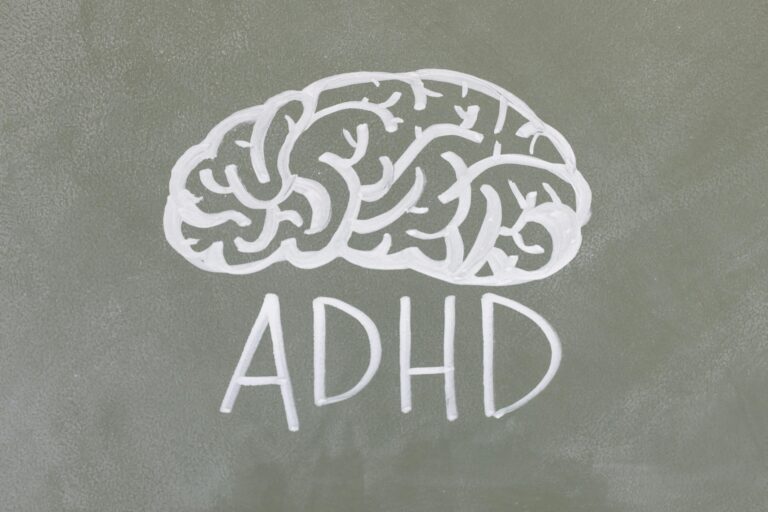Much has been made of the Mediterranean diet. Health professionals insist the Greek approach to eating is as close as we can get to the fountain of youth.
The Mediterranean diet does more than make you look and feel young. This unique approach to mindful nourishment also provides a mental health boost.
Why Nutritional Psychologists are Going Greek
Olives. Fish. Nuts. Beans. Leafy greens. Artichokes. Wine. These are the tasty highlights of the Mediterranean diet.
The mainstream media has hyped Greek eating for decades, focusing on its merits in terms of body health and lifespan longevity. What the legacy media doesn’t report is the diet’s mind-boosting qualities.
The Mediterranean diet has a positive impact on human psychology, reducing anxiety, depression and stress. The diet might even protect the fragile human mind against the development of mental disorders.
Let’s shift our attention to the “why” of the matter as explained through nutritional psychology.
Scientists and nutritionists suspect the Mediterranean diet’s magnesium, folate, omega-3 fatty acids and variety of vitamin B variations enhance mental health. Greek foods are chock-full of vitamin B12, B6, B2 and B1.
Mediterranean food also has a low glycemic index. It is this low glycemic index that helps decrease the risk of insulin resistance. In response, neurological deficits within the brain decline, helping improve mental health, especially in those with mental disorders.
Healthy Eating and Depression
Those who eat traditional American fare consisting of processed food, fast food and simple carbs often suffer from circulatory inflammation.
Circulatory inflammation is a condition closely linked to mental health problems. Nearly every approach to eating outside of the Mediterranean approach causes such inflammation.
Mindful nourishment prioritizes Mediterranean foods to decrease the chances of depression without resorting to alcohol, drugs or anti-depressants.
The Greek diet is idiosyncratic in that it has a significant amount of tryptophan. Tryptophan, commonly found in turkey, is notorious for inducing drowsiness when consumed in excess.
What most don’t know is that tryptophan is also a serotonin precursor. Serotonin is a “happy chemical” released to the brain to boost mood and mental health. Keep in mind, the brain is the highly sensitive “headquarters” of mental health.
The Greek diet also has elevated folic acid levels. High folic acid tends to decrease depression levels.
The Mediterranean approach to eating is even loaded with health-boosting omega-6 and omega-3 compounds. Such compounds reduce inflammation, promoting healthy blood flow throughout the body and the brain.
Go Gluten-free for Mental Health
Take a close look at your grocery haul after pivoting to the Mediterranean diet and you’ll find little-to-no mention of gluten. Greek eating is nearly gluten-free eating.
Gluten is a net negative for the digestive system and the mind. Gluten causes inflammation that causes a wide variety of disorders. The resulting inflammation harms the brain and body.
Excess gluten manifests in the form of mood and behavioral issues. An abundance of gluten has the potential to create a mental fog that hinders both memory and cognition.
Nutritional psychologists also highlight the connections researchers have made between gluten and depression, anxiety, mood swings and even schizophrenia. Moreover, gluten is also linked to attention deficit hyperactivity disorder (ADHD).
Researchers have also determined those saddled with anxiety tend to have a higher sensitivity to gluten. Go gluten-free and you’ll reduce anxiety while simultaneously improving your gut health by mitigating damage to the sensitive intestinal lining.
Some researchers have postulated that gluten is inherently nefarious, causing the gut to sabotage the body. It appears the gut permits gluten to move beyond the blood-brain barrier, triggering an immune response in the brain.
This phenomenon causes hallucinations and even potential psychosis.
Make a Strategic Shift Away From Gluten
If you haven’t gotten into the habit of checking food ingredients, now is the time to start. Check each and every item for gluten before placing it in your shopping cart.
Gluten is commonly found in grain-based products including those with rye, spelt, wheat and barley. Moreover, many baked goods contain gluten for elasticity.
You’ll do your body and mind a favor by eliminating or minimizing baked goods including bread, bagels, pasta, waffles, pancakes and crackers.
Other foods and beverages containing gluten include beer, couscous, breakfast cereals and pies. Even some salad dressings and soy sauce often contain gluten.
Pivoting away from gluten-laden food to Greek food has the potential to be difficult. Those who’ve consumed traditional American fare for decades will find the transition to Greek eating requires willpower and self-discipline.
Mindful Nourishment Through Greek Eating
Mediterranean eating centers on foods consumed by those living near the Mediterranean Sea including Greece, Italy, Spain and France. Fish, olives and extra virgin oil are integral components of the diet.
Omega-3 and monounsaturated fatty acids within fish and extra virgin olive oil greatly benefit the body and mind. Substitute olive oil for butter, margarine and salad dressing and you’ll reap the benefits.
Greek eating also centers on fresh vegetables and fruits including grapes, leafy greens, tomatoes and dolmas. Such whole plant foods are rife with polyphenols. Polyphenol consumption has been tied to reduced depression risk in nearly 40 studies.
Polyphenols also help reduce the severity of depression. Moreover, polyphenols help promote the growth of helpful bacteria that modulates the body’s immune response.
The result is the generation of critically important anti-inflammatory response. Enhancements in such positive bacteria and the corresponding immune response might explain why the Greek approach to eating reduces anxiety.
Greek Food and Oxidative Stress
Fresh fruits, veggies, fish, grains, beans and nuts have a commonality: they decrease oxidative stress.
These Greek foods combined with extra virgin olive oil and a nightly glass of red wine minimize anxiety.
Less stress and anxiety means better mental health. It appears this unique approach to eating enhances the body’s stress resilience. A less-stressed body reduces mental stress and ultimately liberates the mind from the burden of anxiety.
The transition to and from anxiety and depression is a vicious cycle no one should have to endure. Reduced anxiety through Greek eating ultimately paves a path toward a happier life.
Some studies even suggest those who adhere to the Mediterranean diet enjoy a lower Alzheimer’s disease risk. Healthy Greek eating seems to hinder the pace at which cognitive decline occurs, liberating people to live free from the burden of dementia.
Timing Matters but It’s Never too Late to Go Greek
Several randomized control trials analyzing those who’ve made the transition from traditional approaches to eating and the Mediterranean approach reveal some interesting findings.
For one, the randomized control trials suggest the benefits obtained from enhancing eating patterns with the Greek approach are that much more pronounced when adopted early in life.
Though the benefits of the Mediterranean diet aren’t as significant when one enters the golden years of life, this approach to eating still benefits seniors. In particular, randomized control trials indicate the cognitive functioning of unhealthy older adults improves after transitioning to the Mediterranean diet.
It is particularly interesting to note that the data shows those who adopt the Mediterranean approach to eating enjoy improved cognitive performance including less cognitive decline in older individuals. However, the mind-boosting benefits were not as pronounced in those in the middle years of life.
Here’s the moral of the Mediterranean diet story according to nutritional psychology: it is never too late to alter nutritional intake. Both the mind and the body greatly benefit from a predominantly Greek-oriented approach to nutritional sustenance.
Greek Eating in the Context of Sex
Sift through the data detailing the merits of the Mediterranean diet and you’ll find there are differences in outcomes between men and women. Longitudinal results indicate those who strongly adhered to the Greek eating approach in midlife enjoyed a reduced risk of depression.
The surprising twist is the decline in depressive symptoms was greater in men than women. Though women who eat Greek are less likely to be depressed, the diet appears to be less impactful on the fairer of the two sexes.
Nutritional psychologists and nutritional psychiatrists believe women who eat Greek are more likely to be depressed simply because they are disproportionately depressed as a collective sex cohort.
The silver lining is that additional longitudinal findings spanning an average of two decades reveal those who firmly commit to Greek eating reap the benefits, regardless of sex.
Such a sustained and prolonged adherence to the Mediterranean diet significantly reduces the risk of depression among women as they transition to later adulthood and the golden years of retirement.
Nutritional Guidance During Your Food Journey
If you have the will, there is a way. A nutritional psychiatrist will serve as your guiding light, helping you gracefully transition away from unhealthy eating to the Greek approach.
As is often said, the fastest way to learn something new is to ask someone who has the answer. Nutritional psychologists and nutritional psychiatrists hold the missing pieces to your health puzzle.
Schedule an appointment with a nutritional psychiatrist today and you’ll have an invaluable ally in your quest to transform your body and mind.
Are you or someone you know experiencing these challenges? Learn more about how our services can help by clicking here.







